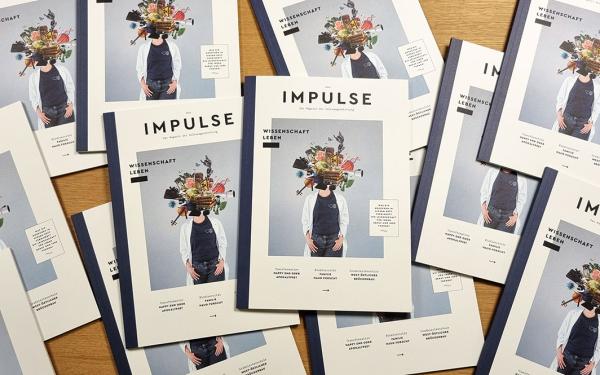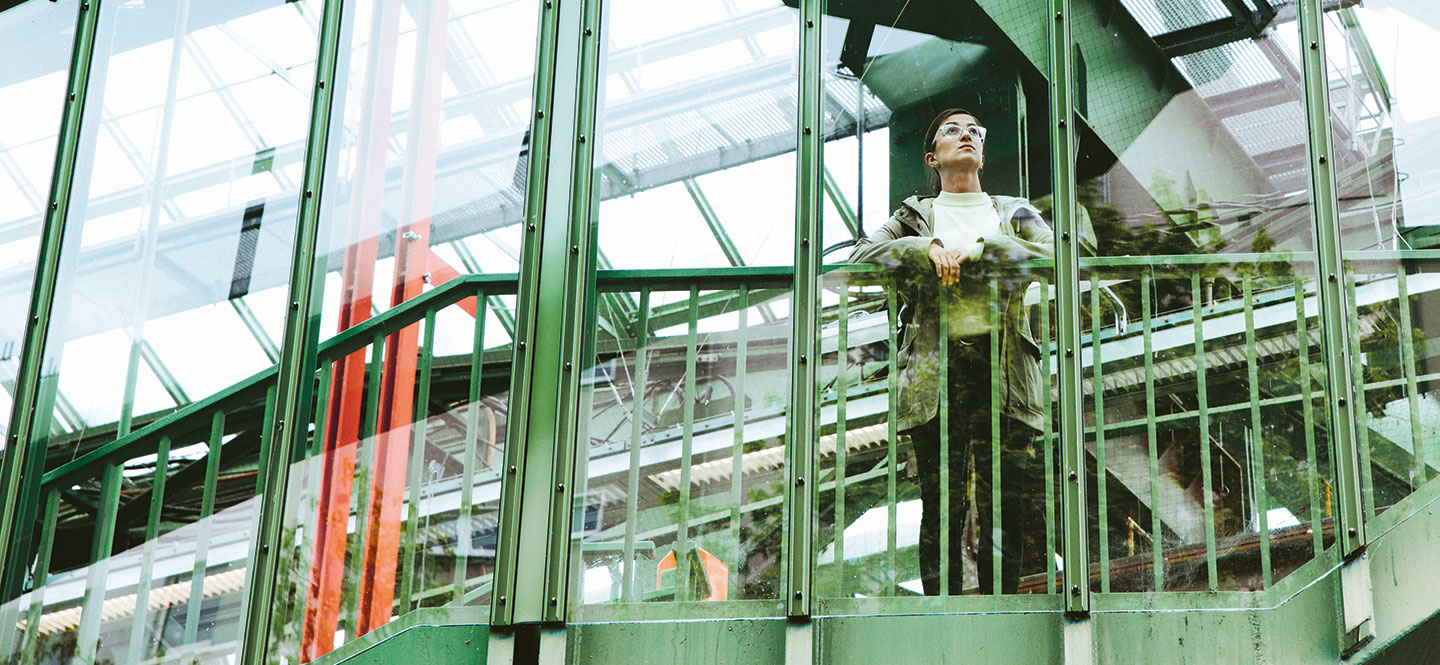
Julia Sellmann für VolkswagenStiftung
Happy ending or apocalypse?
Narratives can either drive or discourage people. Transformation researcher Karoline Augenstein is convinced of this. She wants to find out how narratives of the future can impact on the way it is shaped.
Fast-forward to the future and decide for yourself the outcome of a game or story: That's the stuff of video games or children's literature – and there it's called "Create your own future". Karoline Augenstein,junior professor of policy analysis at the University of Wuppertal with a focus on transformation research and sustainability refers to this concept to explain her research topic. "We really are capable of shaping the future in real terms," she says. The question is: Who is doing the fast-forwarding and what is the narrative of the future? Does one depict dystopian scenarios, like the climate activists of Extinction Rebellion or the Last Generation, to make the point that we must urgently take action now? Or is your narrative about a humanity capable of responsible action and adopting policies that will solve the climate problem, as is the case with some political models and conceptual approaches? Always against the background of the important question: How can science help to create narratives that provide orientation and encourage people to be part of the change?
Augenstein discovered the importance of narratives while researching the opportunities of e-mobility in certain model regions for her dissertation. She found that "the more actors involved, the greater the emergence of multilayered narratives. Then, in the case of electric cars for instance, the discussion no longer simply revolved around purchase incentives and charging stations, but car sharing, public transportation and the use of public street space were brought into the discourse. The chances of achieving more sustainable system innovation were then greater."
Questioning routines
The 38-year-old was already firmly anchored in transformative science, the science that explicitly sees itself as an agent of social transformation. She became aware of her "field," including its well-known protagonist Uwe Schneidewind, while studying for her master's in "Sustainability Economics and Management" at the University of Oldenburg. "Transformative science fascinates me because we develop methods, theories and approaches that radically question normative routines and open up spaces for reflection on the structures involved. This makes it possible to do things differently," she says.
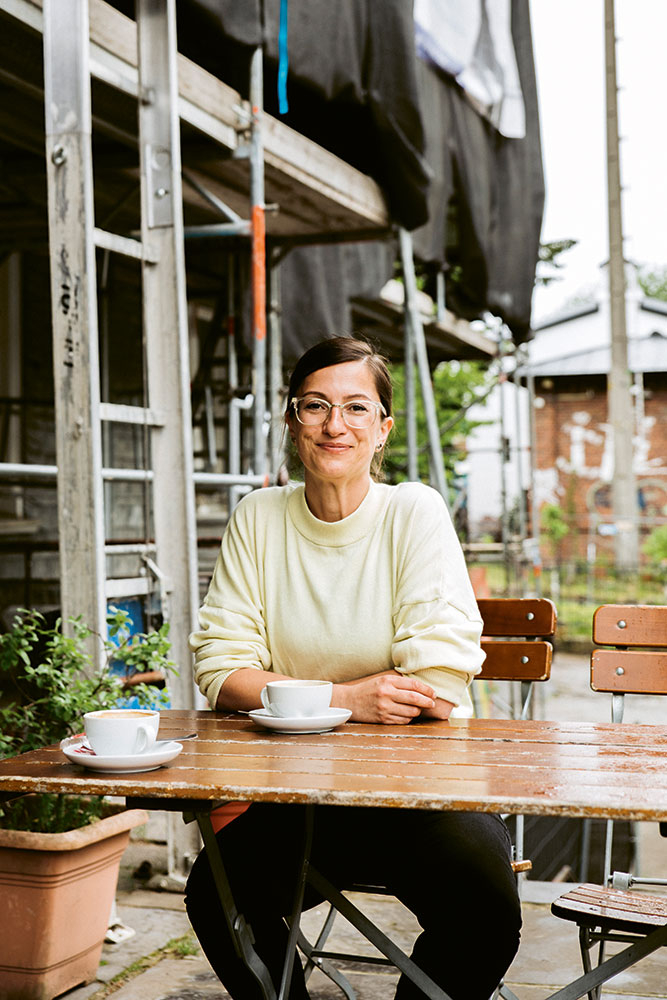
An "ongoing social congress with ambition and impact" is how the Utopiastadt in the north of Wuppertal sees itself. As a frequent visitor, Karoline Augenstein enjoys the diverse activities there.
As a doctoral student, in 2011 she moved to Wuppertal to work with Uwe Schneidewind, who had since taken over as director of the Wuppertal Institute for Climate, Environment and Energy. The institute is considered a center of the transformative science in Germany. Augenstein was there first as an assistant to the institute’s management and then as a research associate when it founded the Center for Transformation Research and Sustainability (transzent) together with the University of Wuppertal in 2013. The center is a kind of "hub" for transdisciplinary research conducted by scientists working together with civil society initiatives, businesses, politics, and administration in Wuppertal to try out new things in real-world laboratories. "The challenges of sustainability are so complex that you have to involve practice right from the start. That's the only way research can be really solution-oriented," says Augenstein, explaining the Wuppertal approach to real-world-lab research. In the city, she found there was already an established network encompassing both science and practice. Civil society initiatives started a discourse on industrial wasteland and vacant buildings and were committed to using them productively. "These were almost ideal conditions for conducting research together in the real-world lab," says Augenstein.
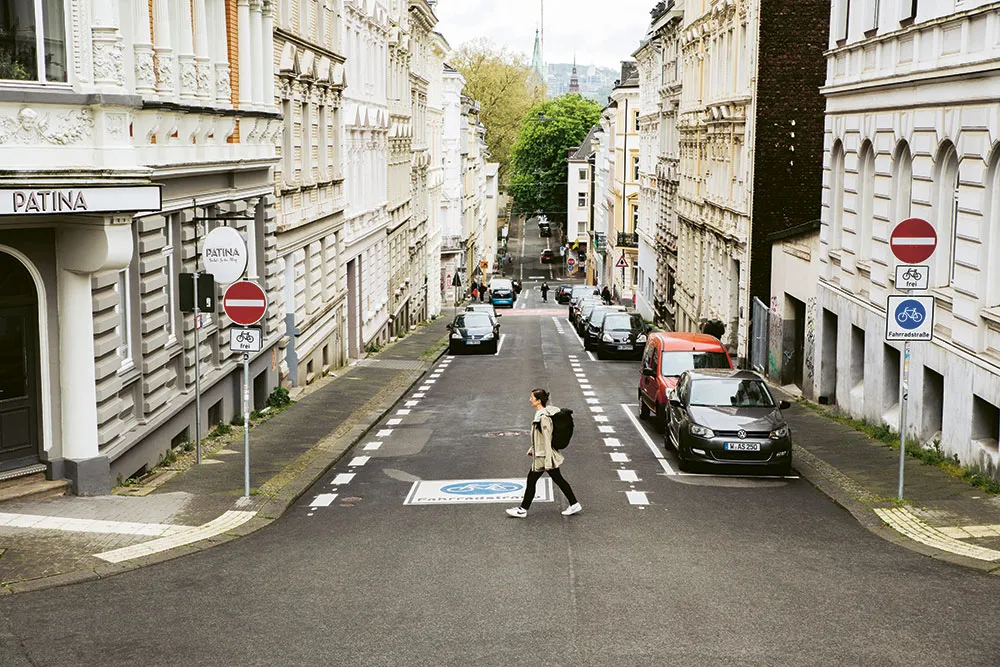
The Neue Friedrichstrasse creates a direct connection from the Nordbahntrasse to downtown Elberfeld. Wuppertal is also easy to explore on foot.
Diversity instead of fixation
That's precisely what she did – starting in 2017 as a junior professor and co-group leader of a Junior Research Group in social-ecological research at transzent. This lasted six years and was funded by the German Ministry of Education and Research. In a project titled "Urban Up" the group investigated how stakeholder initiatives, businesses or the city administration can trigger processes of urban change and contribute to a transformation toward sustainability. Augenstein revisited the question that had occupied her as a doctoral student: What were the narratives of those involved? She explored this together with the stakeholders, because she was convinced that stakeholders not only need to be aware of their own perspectives but must also engage in dialog with others in order to develop strategies capable of achieving sustainability transformation.
The starting point was a project implemented in cooperation with an initiative called Utopiastadt: Over a period of eight weeks, citizens, representatives of the business community, and socially and culturally engaged people could use shipping containers to experiment with different projects and ideas on how the land could be put to good use. A confused diversity developed – so Augenstein set about organizing a process of reflection: Who had what to contribute? "For some, the narrative was about how to create a place for drinking coffee and dancing; for others, it was to be a free space entirely without commercialism," she says. Together, they also came to realize that focusing on the conventional concept of shopping zones, recreational areas or cultural sites in the land-use plan tends to rob urban society of the diversity in between.
Augenstein herself learned a lot about real-world lab research. For example, the importance of civil-society stakeholders being involved in the conception of a project from the very beginning. And that as much as the practice partners appreciated the reflection process of meetings, recording the proceedings, workshops, and conclusions organized by the researchers, they would also have liked to see more concrete results.
If she were to continue telling the story of real-world lab research in transformative science based on her experiences to date, it would go like this: In ten or twenty years, there will be meta-analyses of real-world labs with findings about their effect, the factors leading to success, and the distribution of roles between researchers and citizens. She hopes that students at different locations will then also be able to increasingly conduct research in similar teaching projects and develop the skills required for transformation processes.
Crossing the boundaries of disciplines
It would also be welcome if interdisciplinary and transdisciplinary research were perceived to be more self-evident, she says. "My topics have always been transdisciplinary, but when I was doing my doctorate, I was constantly asked to which discipline I belonged." In transformative science in particular, the conventional division into disciplines hardly does justice to the issues involved. She sees herself as a social scientist in transformation research.
Karoline Augenstein is now being supported by the Volkswagen Foundation in another "border crossing". It is funding her current project with the title "Narrative Futures: Developing an Interdisciplinary and Transdisciplinary Approach to the Construction of Futures and the Shaping of Transformation Processes through Narrative" – as one of the first pioneering projects in the Foundation’s profile area "Social Transformations". The project is anchored at transzent and combines approaches from transformation research, political science, literary studies, and futurology. There will also be a another real-world lab. "I want to find out what form a narrative must take in order to highlight the openness of futures. How can it help to question conventional concepts and trigger impulses for action?" explains Augenstein.
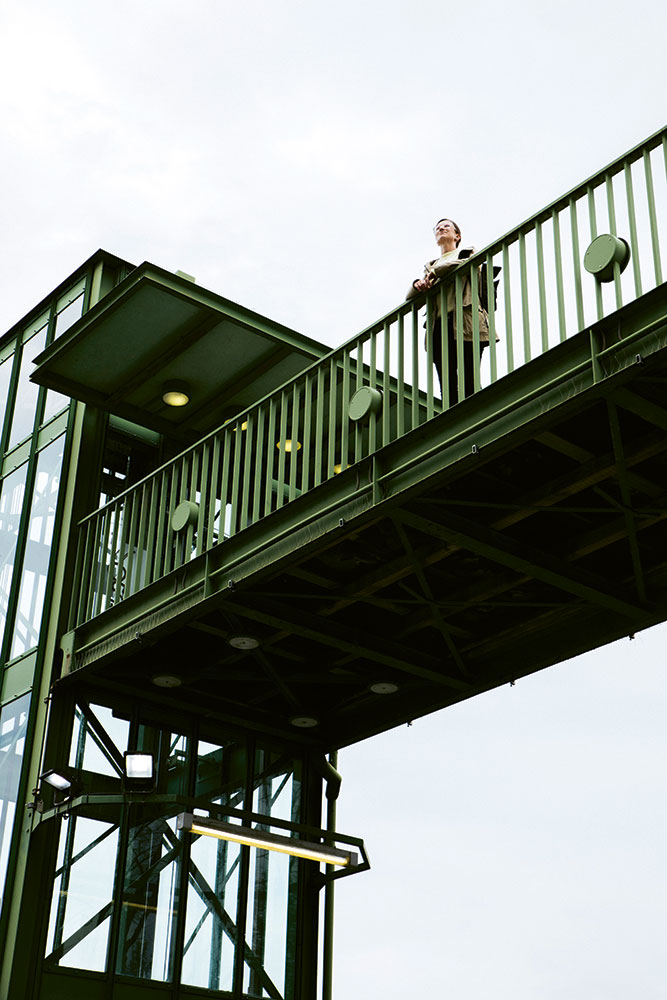
Wuppertal innovative: Launched in 1901, a suspension railway served as a passenger transportation system (here: Kluse station).
The openness of futures: This also applies to her own situation. What comes after the junior professorship? Will she continue to find suitable calls for proposals? Can the structures of collaboration with non-academic stakeholders be further expanded and maintained? Unfortunately, fast-forwarding the story at this level is not so easy: The German science system has its own narratives – and all too often this can be quite nerve racking.
We hope for a happy ending here as well.

